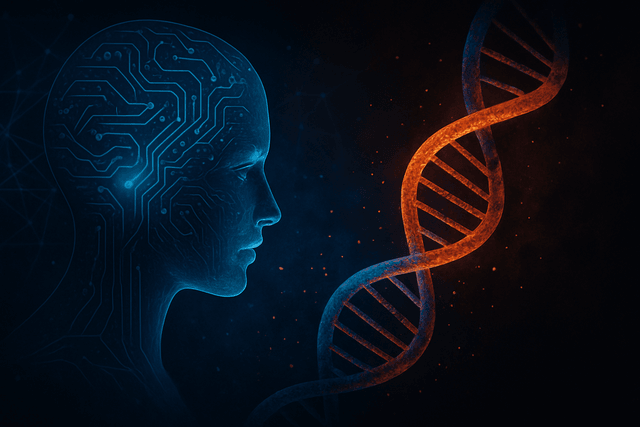Google DeepMind has achieved a major breakthrough in computational biology with AlphaGenome, an artificial intelligence system that deciphers the human genome's most mysterious regions.
Unveiled on June 25, 2025, AlphaGenome tackles what scientists call genetic 'dark matter'—the 98% of our DNA that doesn't code for proteins but plays crucial roles in regulating gene expression. While these non-coding regions were once dismissed as 'junk DNA,' researchers now recognize they contain vital regulatory instructions that, when disrupted, can lead to disease.
What sets AlphaGenome apart is its ability to process extremely long DNA sequences—up to 1 million base-pairs—while maintaining single-base resolution. The model predicts thousands of molecular properties, including gene expression levels, RNA splicing patterns, and protein binding sites. It can also score genetic variants by comparing predictions between mutated and unmutated sequences.
"For the first time, we have a single model that unifies long-range context, base-level precision and state-of-the-art performance across a whole spectrum of genomic tasks," said Dr. Caleb Lareau of Memorial Sloan Kettering Cancer Center, who had early access to the system.
AlphaGenome has already demonstrated remarkable capabilities in cancer research. In tests involving T-cell acute lymphoblastic leukemia, the model accurately predicted how specific mutations activate the cancer-related TAL1 gene by creating a new binding site for the MYB protein—replicating a known disease mechanism previously confirmed only through laboratory studies.
Ruth Porat, Alphabet and Google's President and Chief Investment Officer, highlighted the significance of this technology during her recent address to the American Society of Clinical Oncology. As a breast cancer survivor herself, Porat emphasized how Google's AI research shows significant promise for early detection and treatment of cancer.
DeepMind has made AlphaGenome available via API for non-commercial research, with plans for a full release in the future. While the model isn't designed for personal genome interpretation or clinical use yet, it represents a powerful new tool that could accelerate discoveries across disease research, synthetic biology, and basic science.

